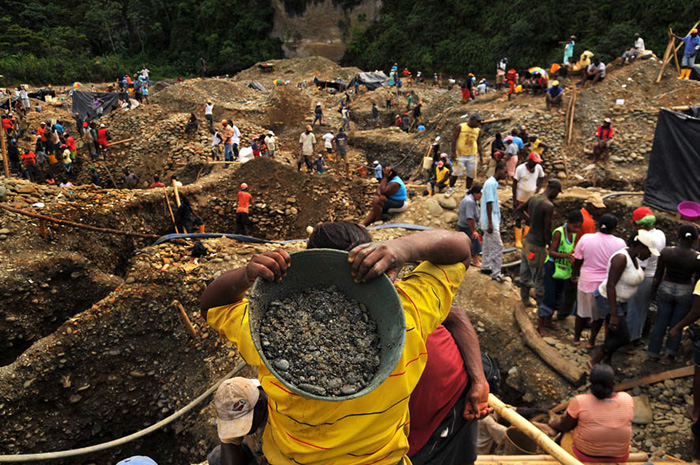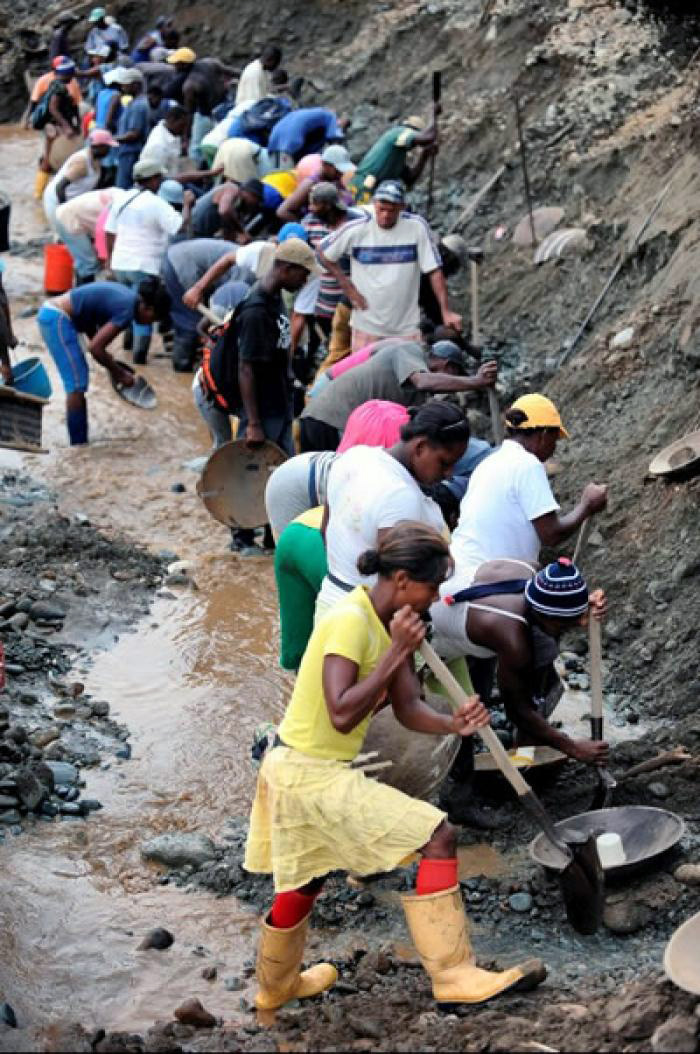In Colombia, scientists that want to establish contracts to have access to genetic resources for their studies spend even three years and a half in average, just to present their applications to environmental authorities. Obtaining the licenses is very expensive and making the previous studies with indigenous communities and the real time spent in the scientific labor, along with the evaluation of certified peers is also a big head ache. This takes too much time and bureaucratic procedures. A testimony of this is that in the last 15 years, only 46 scientific licenses were issued, while 7,800 mining licenses were signed in the last 8 years, during Uribe"s Government.
In average, licenses for this mining activity (suspended until February of 2010) take three months. "During the governments of César Gaviria, Ernesto Samper and Andrés Pastrana (125 years) 1,700 licenses or mining tittles were issued in the country, at a rhythm of 762.5 per year, that means 2.08 each day. An increase of 459%, according to Professor Gonzalo Andrade, associated to the research vice-presidency at Universidad Nacional de Colombia, based on a study of the expert Guillermo Rojas Rudas. In the same period, just 46 scientific licenses were issued, mentioned the professor.
One study made by Gabriel Ricardo Nemogá, an expert in politics and law about biodiversity from the Genetics Institute of Universidad Nacional de Colombia, reveals numbers regarding the real situation of science and investigation works in Colombia. This begins with the agreement 059 of 2008 with the Ministry of the Environment, published in the Investigation about biodiversity in Colombia: "proposal to adjust regulations of access to genetic resources and derived products, and the Andean decision 391 of 1996."
According to this document, up to now, and registered in Colciencias, there are 957 work groups in Biotechnology, Basic, Marine, Agricultural and Health Sciences. From these, 131 have 565 projects that need direct access contracts to genetic resources. The current Colombian regulation, based on Decree 309 of 2000 of the Ministry of Environment, obliges to create this type of contracts.
Up to now, just 46 have been approved in the last three years, 45 are in being in process and 14 were filed. From the total of admitted, just one belongs to Universidad Nacional de Colombia, which counts on 1,2000 experts recognized by Colciencias working in Biosciences, without counting the professors and students, and associate professors in all levels (undergraduate and postgraduate, doctorate). Besides, 68% of the research in Colombia is made at Universities (50% in public universities and 18% in private).
There are five obstacles detected: the time spend waiting for the approval (three years and a half in average); the certification of the Ministry of the Interior assuring that in the zone where the study will be carried does not have any ethnic groups (it takes six more months); on third place, the cost of the previous consultation that the researcher has to pay; fourth, the free interpretation made by the lawyers from the Ministry of the Environment and the authorities of the Andean descition 391, the norm that regulates the scientific activity of the Andean Community of Nations (CAN) regarding the access. And the fifth is the application from a Support National Institution that supports and certifies the labor of the research group.
Uncontrolled Mining
The Ministry of Mines decided to suspend the terms for the reception and deliver of applications until February of 2012, with the purpose of reviewing it deeply. The person in charge of this issue, Mauricio Cárdenas Santamaria, is leading this project, which is fundamental for the government. Although some attempts to contact Ingeominas" Director, Óscar Paredes Zapata, were made, his assessors asserted that just the ministry is authorized to speak about the issue.
At this moment nobody knows for sure how many licenses were issued and how many are in force. The Comptroller General of the Republic has just published a document called State Report of the natural resources and the environment, where the institution concludes that the mining activity increased 1,089% between 2000 and 2011, and reveals that the figures do not match, since in 2000, 105 licenses were issued and in 2010, 1,144 were issued. The global balance should be of 10,811, and not of 9,230, as official data reports.
For reading the complete article please visit
 Correo Electrónico
Correo Electrónico
 DNINFOA - SIA
DNINFOA - SIA
 Bibliotecas
Bibliotecas
 Convocatorias
Convocatorias
 Identidad UNAL
Identidad UNAL





